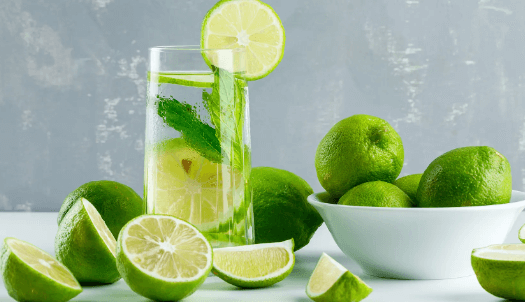
wellhealthorganic.com : remove dark spots on face tang – lemon juice
Introduction
Dark spots on the face can be a frustrating skincare concern for many people. They can result from various factors such as sun exposure, aging, acne scars, and hormonal changes. One of the most popular and natural remedies for removing dark spots is lemon juice. This citrus fruit is packed with vitamin C, which is known for its skin-brightening properties. In this article, we will explore how you can use lemon juice to remove dark spots on your face, its benefits, precautions, and other effective methods for achieving a clear, radiant complexion.
Understanding Dark Spots
Dark spots, also known as hyperpigmentation, occur when certain areas of the skin produce more melanin than usual. Melanin is the pigment responsible for the color of our skin, hair, and eyes. When excess melanin is produced, it can create patches or spots that are darker than the surrounding skin. These spots can vary in size and appear anywhere on the body but are most commonly found on the face, hands, shoulders, and arms.
Causes of Dark Spots
There are several factors that can contribute to the development of dark spots on the face:
- Sun Exposure: UV rays from the sun can increase melanin production, leading to sunspots or age spots.
- Hormonal Changes: Conditions like melasma are often triggered by hormonal fluctuations during pregnancy or while using birth control pills.
- Acne Scars: Post-inflammatory hyperpigmentation can occur after an acne breakout.
- Aging: As we age, our skin undergoes changes that can lead to the formation of dark spots.
- Genetics: Some individuals are more prone to developing dark spots due to their genetic makeup.
Benefits of Lemon Juice for Dark Spots
Lemon juice is renowned for its numerous skincare benefits, particularly for treating dark spots:
- Rich in Vitamin C: Vitamin C helps in lightening dark spots and promoting even skin tone.
- Natural Bleaching Agent: The citric acid in lemon juice acts as a natural bleaching agent, reducing the appearance of dark spots.
- Exfoliating Properties: Lemon juice can help remove dead skin cells, revealing brighter and clearer skin.
- Antioxidant Protection: The antioxidants in lemon juice protect the skin from damage caused by free radicals.
How to Use Lemon Juice to Remove Dark Spots
Here are some effective ways to use lemon juice to treat dark spots on your face:
Direct Application
- Squeeze Fresh Lemon Juice: Extract juice from a fresh lemon.
- Apply to Dark Spots: Use a cotton ball to apply the juice directly to the dark spots.
- Leave On: Allow it to sit for about 10-15 minutes.
- Rinse Off: Wash your face with lukewarm water and pat dry.
- Moisturize: Apply a moisturizer to prevent dryness.
Lemon Juice and Honey Mask
- Mix Ingredients: Combine equal parts of lemon juice and honey.
- Apply the Mixture: Spread the mixture evenly over your face.
- Wait: Leave it on for 15-20 minutes.
- Rinse: Wash off with warm water and pat your skin dry.
Lemon Juice and Turmeric Paste
- Prepare the Paste: Mix a teaspoon of lemon juice with a pinch of turmeric.
- Apply to Dark Spots: Apply the paste to the affected areas.
- Leave On: Let it sit for 10-15 minutes.
- Rinse Off: Rinse thoroughly with water and dry your skin.
Lemon Juice and Aloe Vera Gel
- Combine Ingredients: Mix a tablespoon of lemon juice with two tablespoons of aloe vera gel.
- Apply to Skin: Apply the mixture to your face, focusing on dark spots.
- Leave On: Allow it to sit for 20-30 minutes.
- Rinse: Wash off with cool water and dry your face.
Precautions When Using Lemon Juice on Skin
While lemon juice can be highly effective for treating dark spots, it’s essential to follow these precautions to avoid any adverse effects:
- Patch Test: Always perform a patch test before applying lemon juice to your face to check for any allergic reactions.
- Dilution: If you have sensitive skin, dilute lemon juice with water or mix it with other soothing ingredients like honey or aloe vera.
- Sun Protection: Lemon juice can make your skin more sensitive to sunlight. Always apply sunscreen before going outdoors.
- Moisturize: Lemon juice can be drying, so ensure you moisturize your skin after treatment.
Read also wellhealthorganic.com:weight-loss-in-monsoon-these-5-monsoon-fruits-can-help-you-lose-weight
Other Natural Remedies for Dark Spots
In addition to lemon juice, several other natural remedies can help reduce dark spots:
Apple Cider Vinegar
The acetic acid in apple cider vinegar can lighten pigmentation and improve overall skin texture.
Aloe Vera
Aloe vera contains aloin, a natural depigmenting compound that can lighten dark spots.
Turmeric
Turmeric has anti-inflammatory and antioxidant properties that can reduce hyperpigmentation.
Green Tea Extract
The antioxidants in green tea can help protect the skin and reduce the appearance of dark spots.
Read also wellhealthorganic.com/easily-remove-dark-spots-lemon-juice
Over-the-Counter Treatments for Dark Spots
If natural remedies don’t yield the desired results, consider over-the-counter treatments containing the following ingredients:
Hydroquinone
A skin-lightening agent that reduces the production of melanin.
Retinoids
Derived from vitamin A, retinoids promote cell turnover and help fade dark spots.
Vitamin C Serums
Concentrated vitamin C serums can brighten the skin and reduce hyperpigmentation.
Niacinamide
A form of vitamin B3 that helps lighten dark spots and improve skin texture.
Professional Treatments for Dark Spots
For more stubborn dark spots, professional treatments might be necessary:
Chemical Peels
Chemical solutions are applied to the skin to exfoliate and remove dead skin cells, promoting new skin growth.
Laser Therapy
Laser treatments target and break down melanin deposits, reducing the appearance of dark spots.
Microdermabrasion
A procedure that uses tiny crystals to exfoliate the skin and remove the outer layer, improving skin tone and texture.
Cryotherapy
Liquid nitrogen is used to freeze and remove dark spots, promoting the growth of new skin.
Maintaining Results and Preventing Future Dark Spots
To maintain your results and prevent future dark spots, follow these tips:
- Use Sunscreen: Always wear sunscreen with at least SPF 30.
- Avoid Peak Sun Hours: Limit sun exposure between 10 AM and 4 PM.
- Wear Protective Clothing: Use hats and sunglasses to protect your skin.
- Skincare Routine: Follow a consistent skincare routine with products suited to your skin type.
Conclusion
Removing dark spots on your face using lemon juice is a natural and effective method. With consistent application and proper precautions, you can achieve a clearer and more radiant complexion. Additionally, exploring other natural remedies and professional treatments can provide further options for tackling stubborn dark spots. Always remember to protect your skin from the sun to maintain your results and prevent future pigmentation issues.
FAQs
How often should I apply lemon juice to dark spots?
For best results, apply lemon juice to dark spots 2-3 times a week. Overuse can cause skin irritation and dryness.
Can lemon juice be used on all skin types?
Lemon juice can be harsh on sensitive skin. It’s essential to dilute it with water or mix it with soothing ingredients like honey or aloe vera.
How long does it take to see results from using lemon juice on dark spots?
Results can vary, but most people start noticing improvements in their dark spots within 4-6 weeks of consistent use.
Are there any side effects of using lemon juice on the face?
Lemon juice can cause skin irritation, redness, and increased sensitivity to sunlight. Always perform a patch test before applying it to your face.
Can I use bottled lemon juice instead of fresh lemon juice?
Fresh lemon juice is preferred due to its higher vitamin C content and lack of preservatives, which can be found in bottled lemon juice.
What should I do if lemon juice irritates my skin?
If lemon juice causes irritation, discontinue use immediately and apply a soothing moisturizer or aloe vera gel. If irritation persists, consult a dermatologist.




